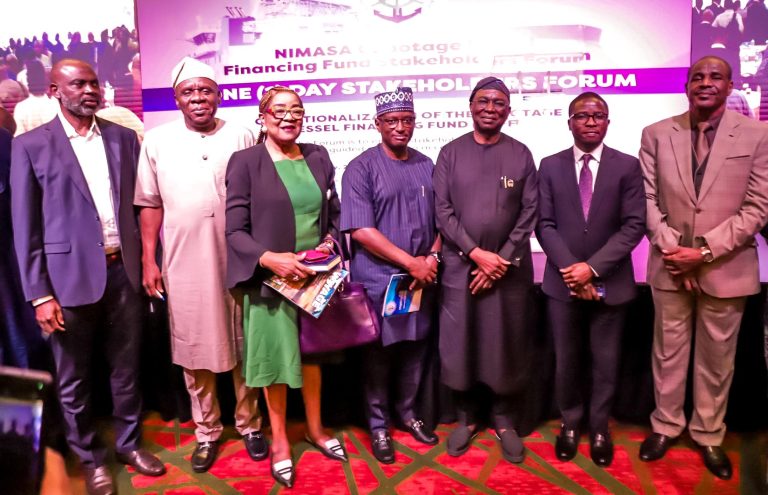- As N10b river ports spark Reps probe of NIWA
Troops of the Operation Delta Safe have destroyed 80 illegal refineries in Bayelsa, Delta and Rivers states, particularly those discovered around Obhoyohan and Ngiri Creeks in Nembe Local Government Area of the state.
The Co-ordinator, Joint Media Campaign Centre, Operation Delta Safe, Maj. Abubakar Abdullahi indicated this in a
statement made available to newsmen in Abuja on Monday, adding that seven of the illegal refineries were destroyed in Bayelsa.
He highlighted that the illegal refineries contained 150,000 litres of suspected stolen crude oil, while three suspects was arrested in connection with the illegalities.
In Delta, the troops destroyed six illegal refineries made up of four storage tanks and two dug out pits filled with suspected crude oil around Sara Abiteye swamp in Warri South West Local Government Area.
“Additionally, another patrol at the axis Ajoloso Creek in Elume community destroyed a camp housing eight illegal refineries.
“Similarly, troops destroyed nine illegal refineries that comprised four ground pits and three metal tanks filled with product suspected to be stolen crude oil at Katu near Camp 5 in Warri South-West.
“This is in addition to seven illegal refineries earlier destroyed around Opunami Creek.
“Another patrol conducted around Udu, Ughelli South Local Government Area discovered eight illegal refineries depot at Udu trailer park and destroyed 1200 drums laden with 140 metric tonnes of illegally refined diesel,’’ he said, saying
that the troops equally destroyed 10 illegal refineries around Bolo in Bonny Local Government Area of Rivers.
“This is in addition to 25 others earlier raided at Creek 6 and Ijokiri in the same Local Government Area,’’ he said, appealing to the people to support Operation Delta Safe with useful information, as he stressed that all hands must be on deck to frustrate the activities of economic saboteurs.
“Let me also advise the sponsors and operators of illegal refineries to desist from the economic sabotage which begets environmental pollution and other social problems.
“Our troops would not relent until our mandate is achieved,’’ the coordinator concluded.
In the meantime, the House of Representatives is set to probe the Nigeria Inland Waterways Authority (NIWA) to determine its efficiency in securing passengers and their goods, it has been learnt.
The lawmakers, sources said, settled for the probe because they felt NIWA was not doing enough about the safety of passengers around and their goods.
The House Committee on Ports, Harbours and Waterways is said to be worried that NIWA is not doing enough to make the ports attractive to investors, despite N10 billion being spent on the construction of river ports in Onitsha (Anambra), Lokoja, Baro and Oguta (Imo).
Findings revealed that work on Baro, Lokoja and Oguta river ports have attained 98, 57 and 75 per cent completion. Onitsha has been completed and a waiting concession.
A government source told The Nation that N3.5 billion was spent on Baro, Lokoja, N4.1 billion and Oguta, N2.7 billion.
NIWA, he said, was yet to provide the platform that would ensure security on the waterways to allow for private sector investment and participation in the river ports to trigger improved utilisation of inland waterways for transportation and easy conveyance of cargo from one part of the country to another.
The authority, a source also said, was yet to take its rightful place in waterways development and reposition the agency to meet the expected target of river port operators and users.
He bemoaned the unregulated activities within and around the corridors of Nigerian waterways and urged NIWA to wake up to its responsibility by securing the waterways and make the river ports attractive.
The unregulated activities of the local boat operators, he said, could affect security of passengers aboard vessels, on shore facilities at intermodal connections, and where other transportation modes interact with NIWA infrastructure.
“The National Inland Waterways Authority (NIWA) was established to improve and develop Nigeria’s inland waterways for navigation. It also has the responsibility to issue licences for inland navigation, piers, jetties and dockyards; examine and survey inland watercraft and shipyard operators, grant permit and licences for sand dredging, pipeline construction, dredging of slot and approve designs and construction of inland river crafts.
NIWA’s role include effective understanding of anything associated with the maritime domain that could impact the security, safety, economy, or environment of the river ports they are promoting and other government facilities they are linked with.
“But if you move from Marina in Lagos to Epe, Iyana-Oworo, Ojo, Badagry, Lekki, Osoroko, Ibese, Ogogo village behind the Lagos port and other riverine areas across the country, you will see the impunity with which the local boat operators are operating on our waters without any corrective measures being taken by officials of NIWA.
“The July 2005 terrorist bombings in London highlighted the need to protect US mass transit systems, including ferries. Later, the effects of hurricanes Katrina and Rita highlighted the criticality of preparedness for recovery of the MTS following a large-scale disaster. The 2008 terrorist attack via the maritime domain against Mumbai, India, highlighted the tie between border security and PWCS. After each event, the Coast Guard reviewed its PWCS strategy and made adjustments where appropriate,” he said.
Additional report from Nation




















